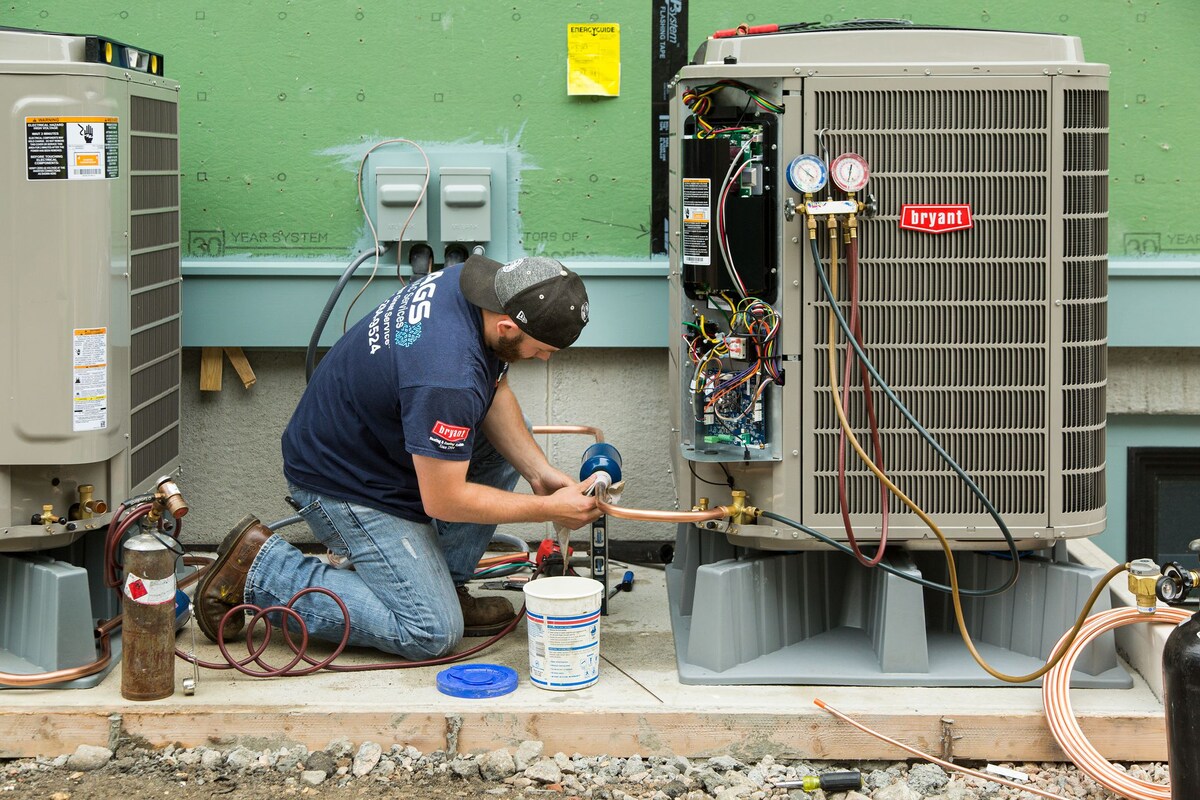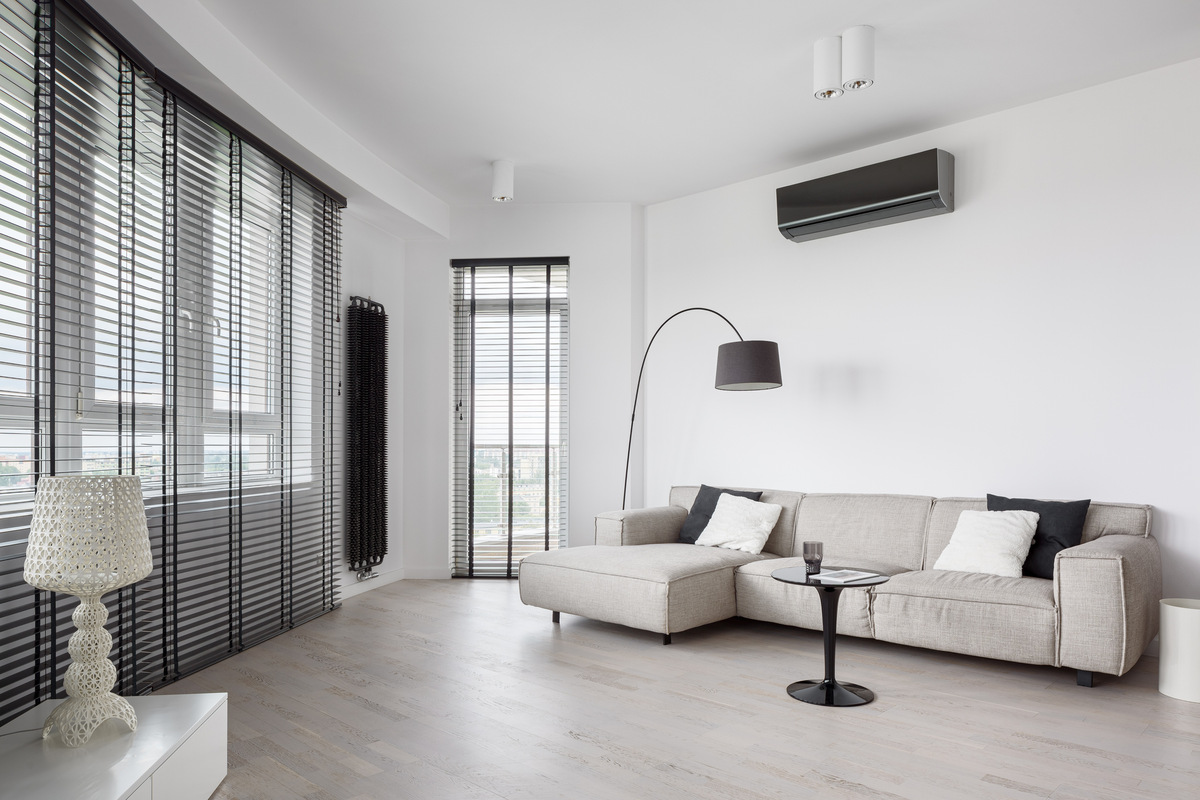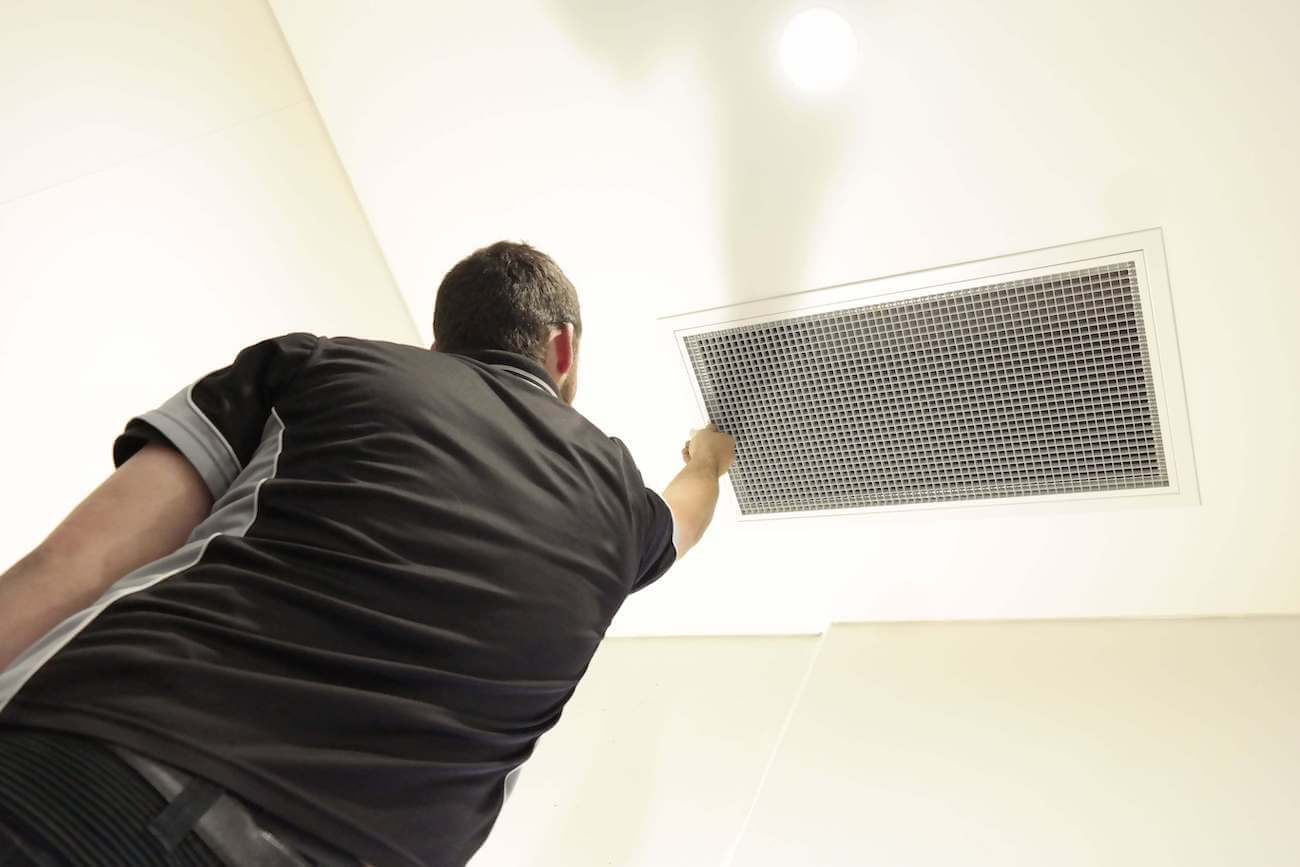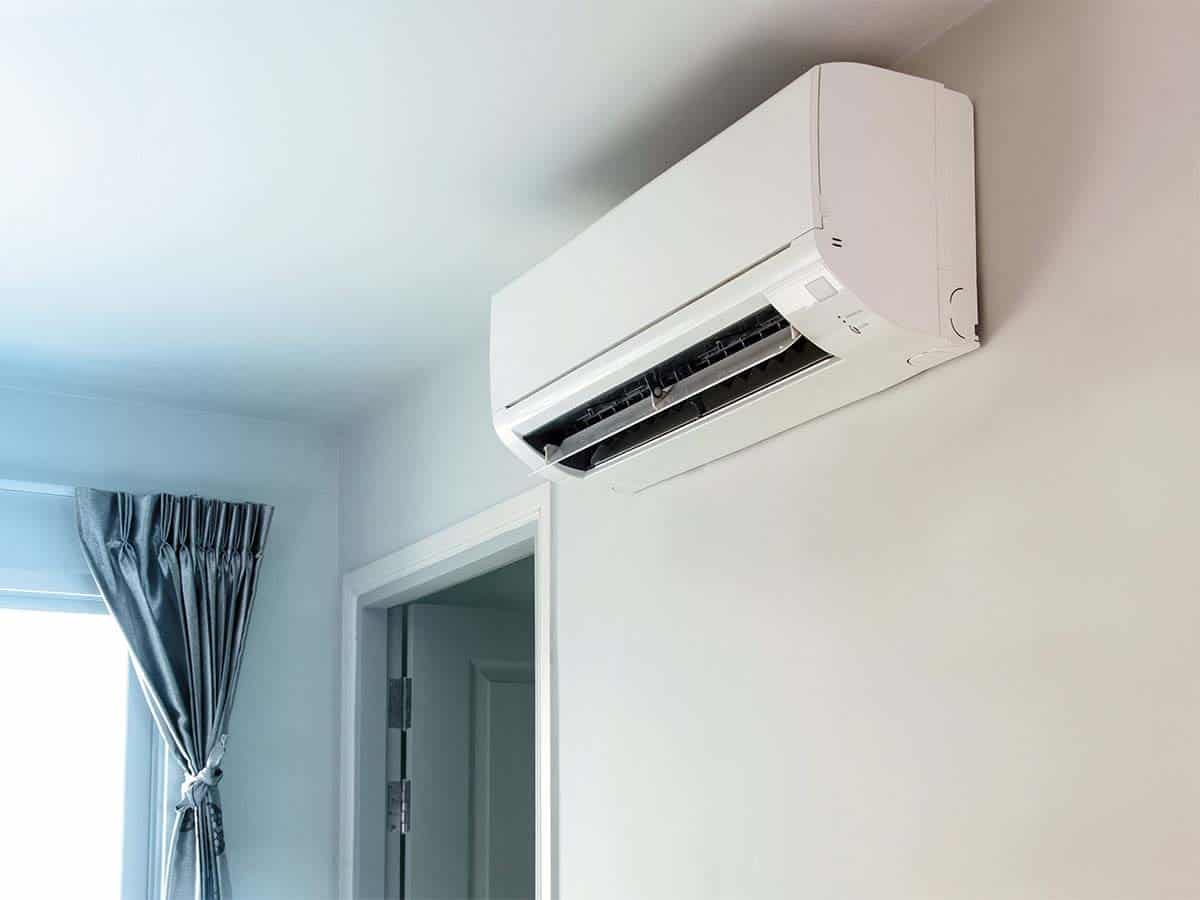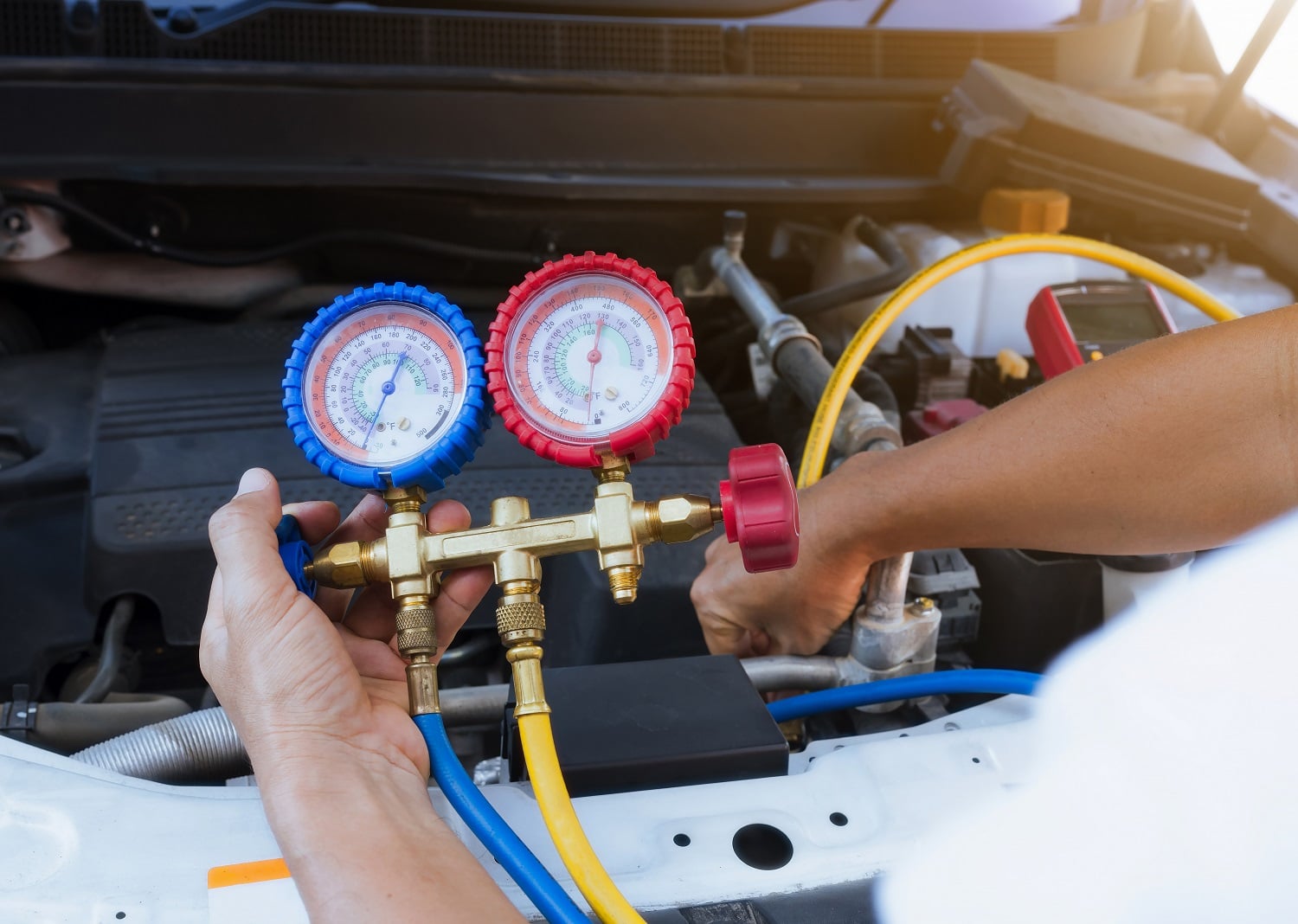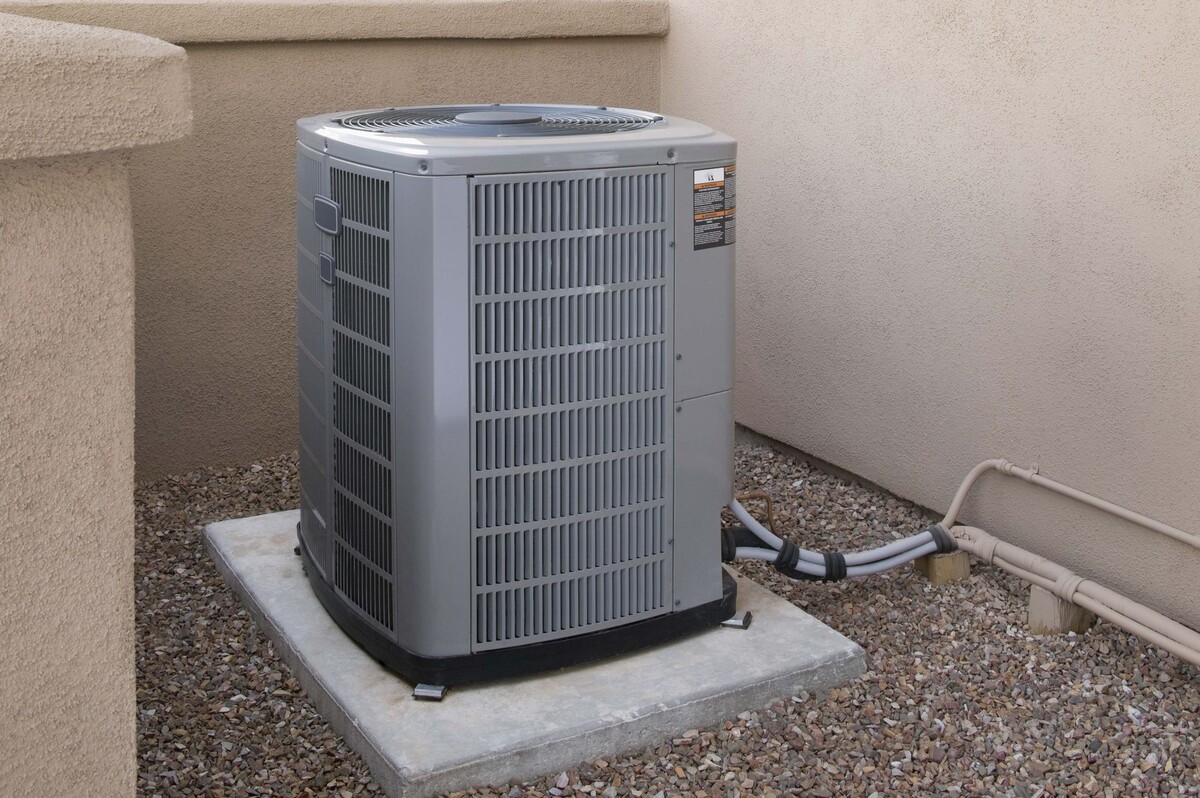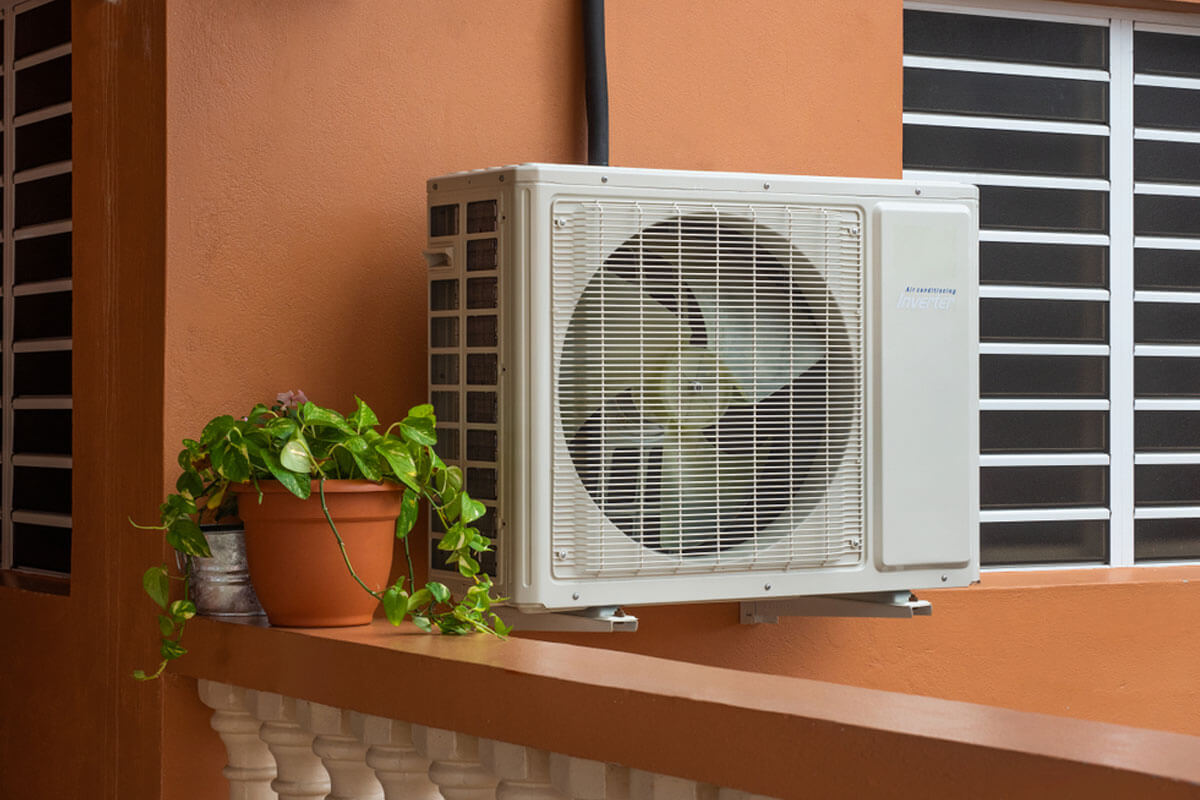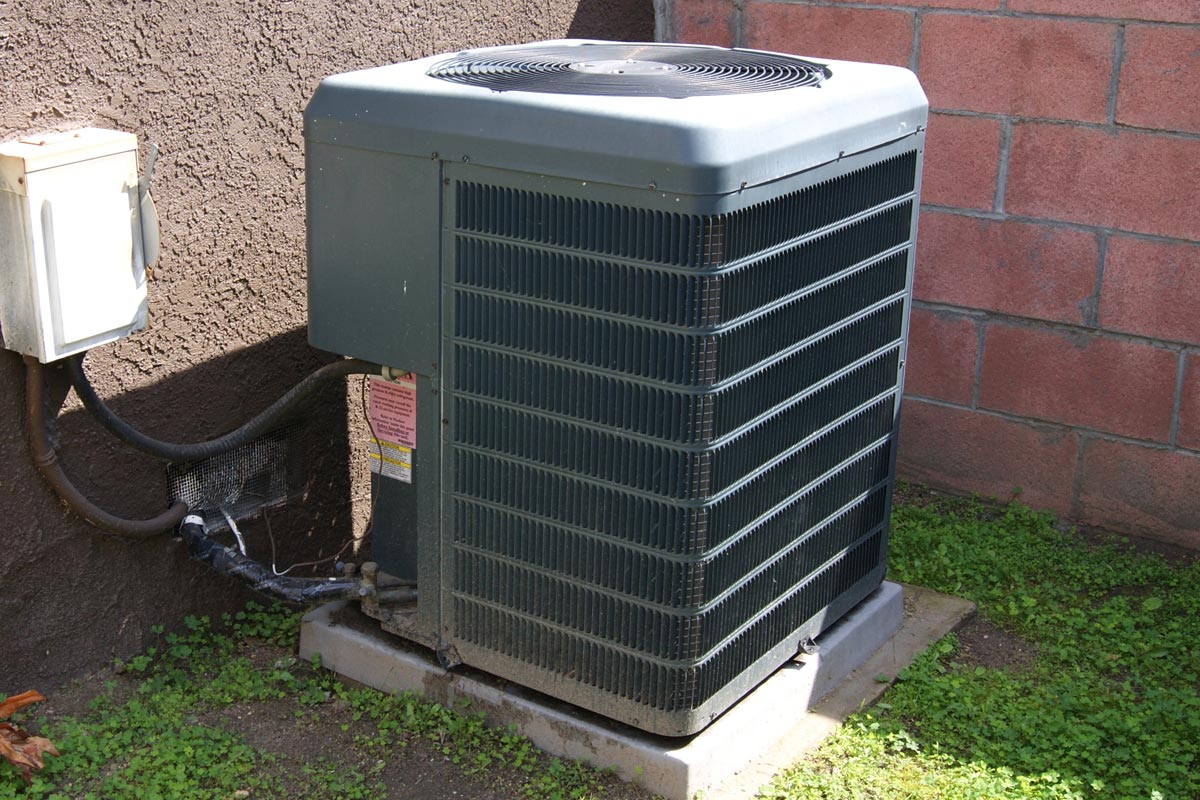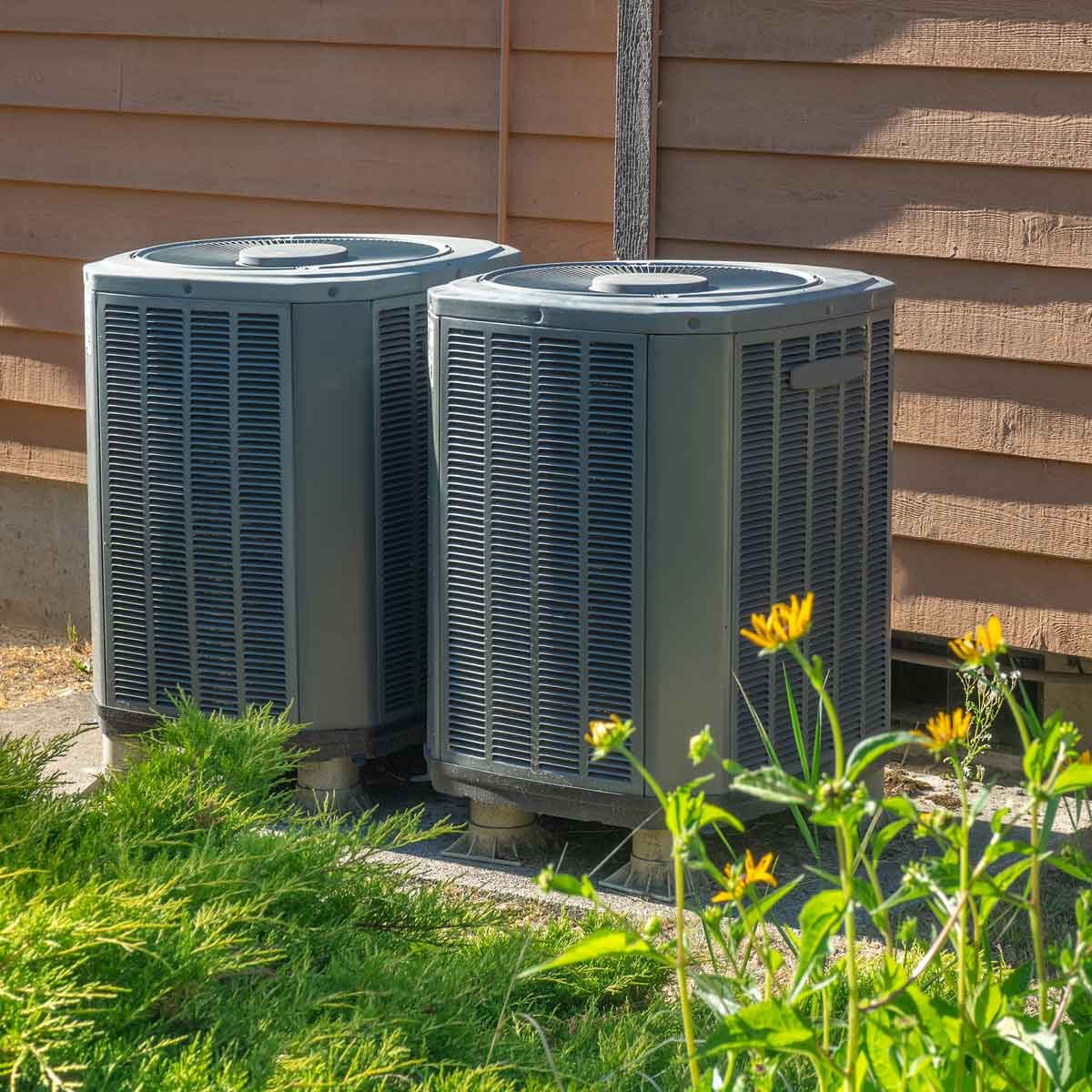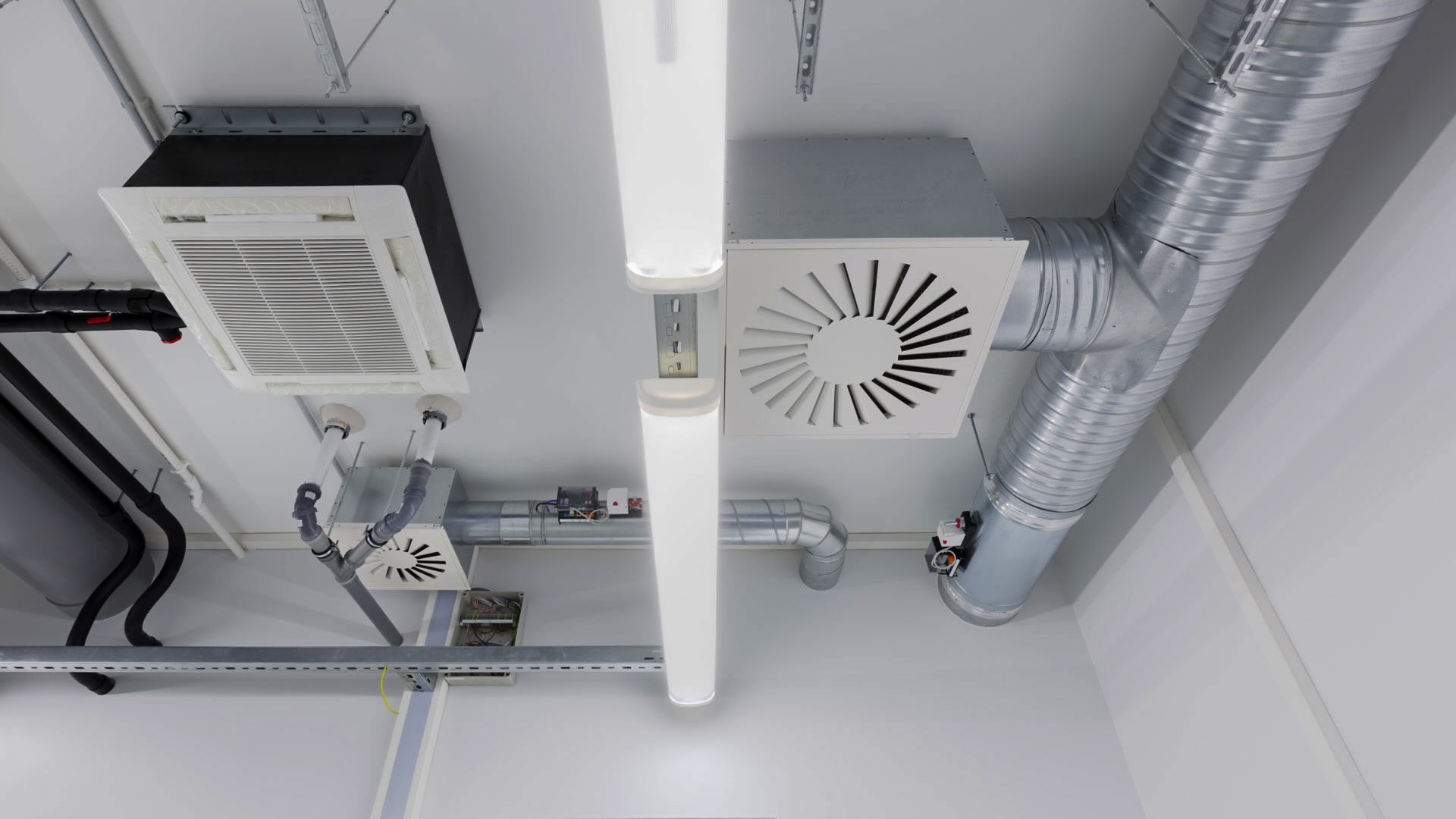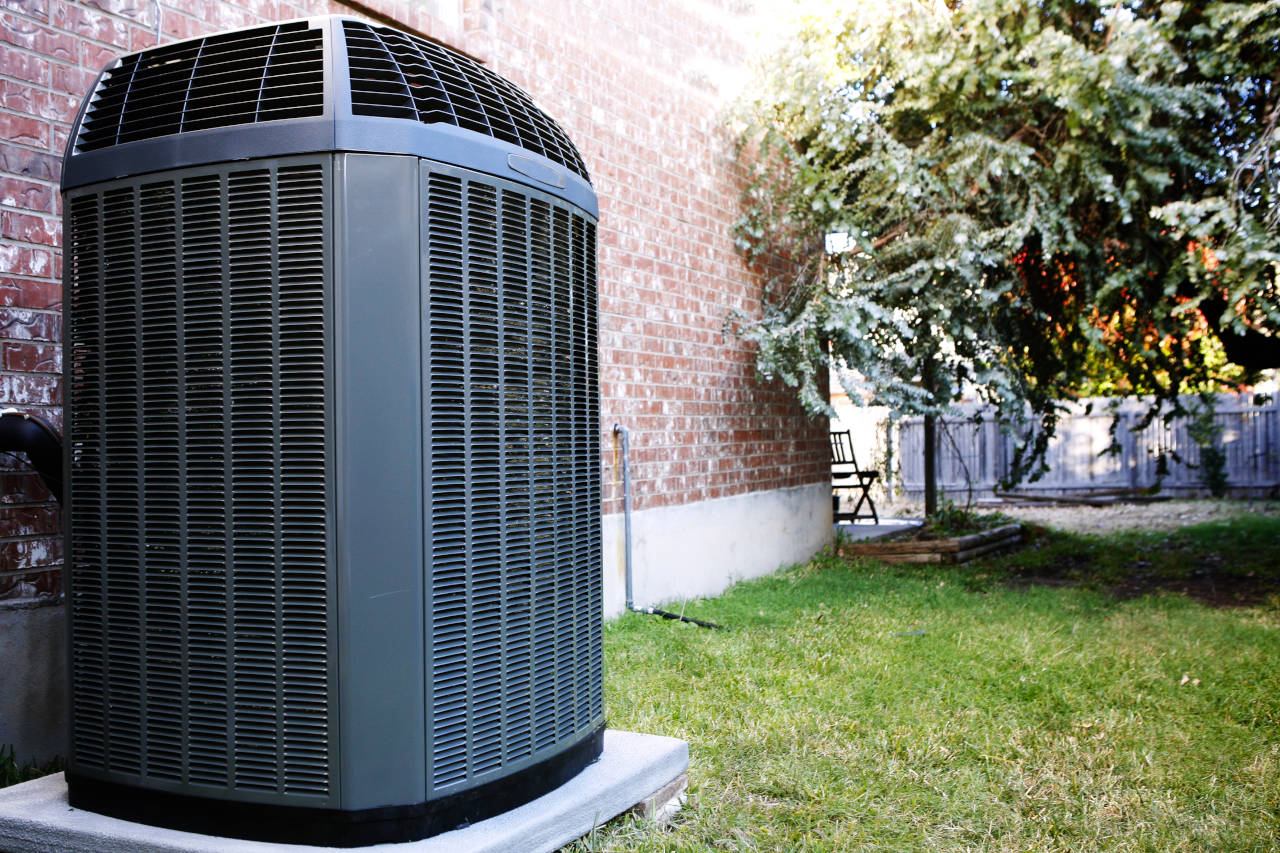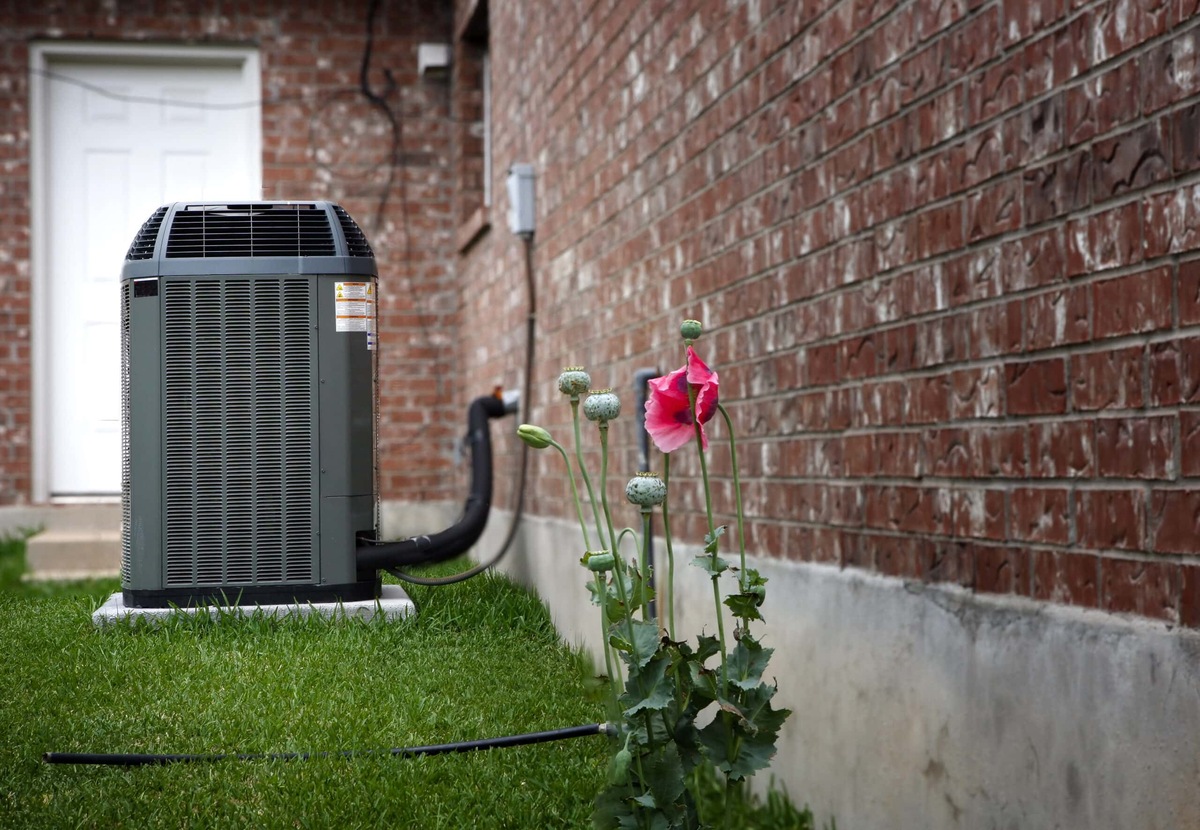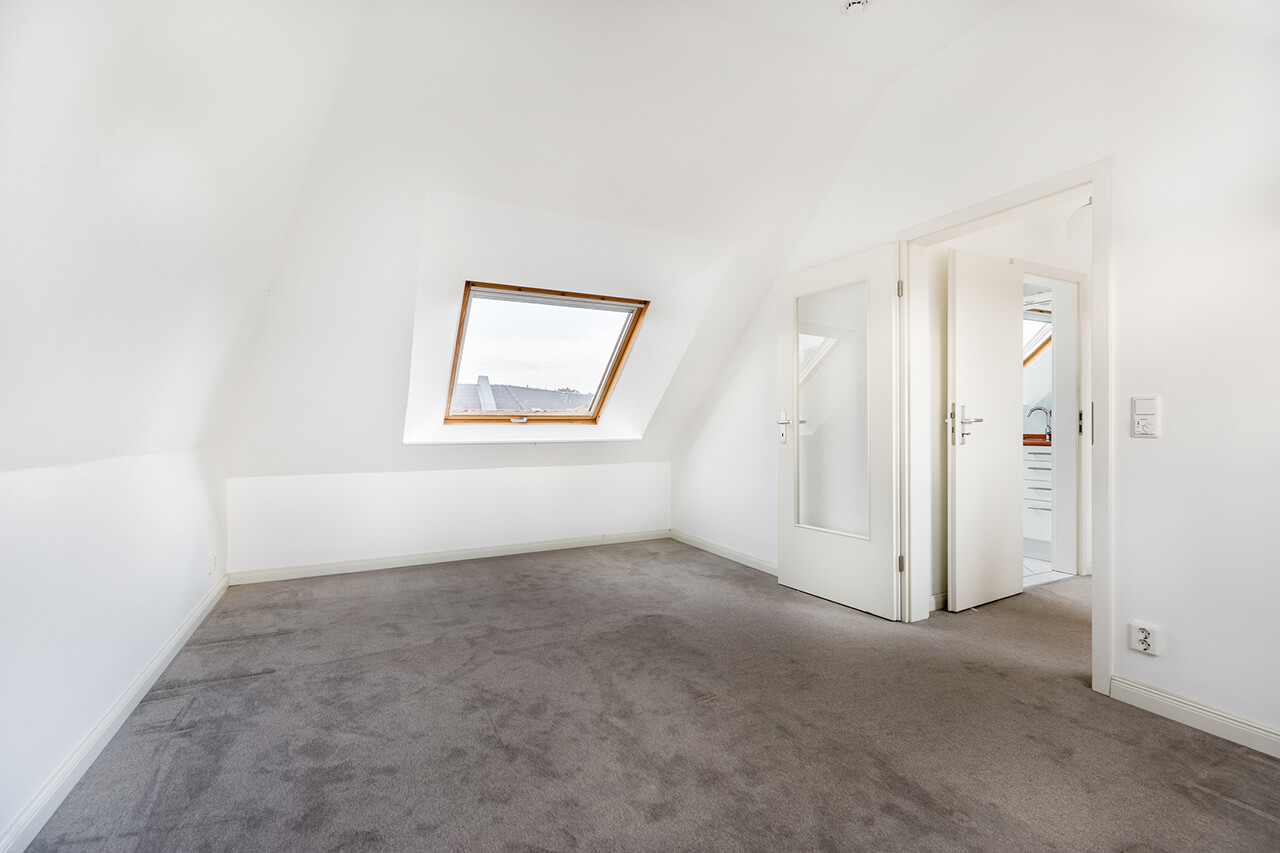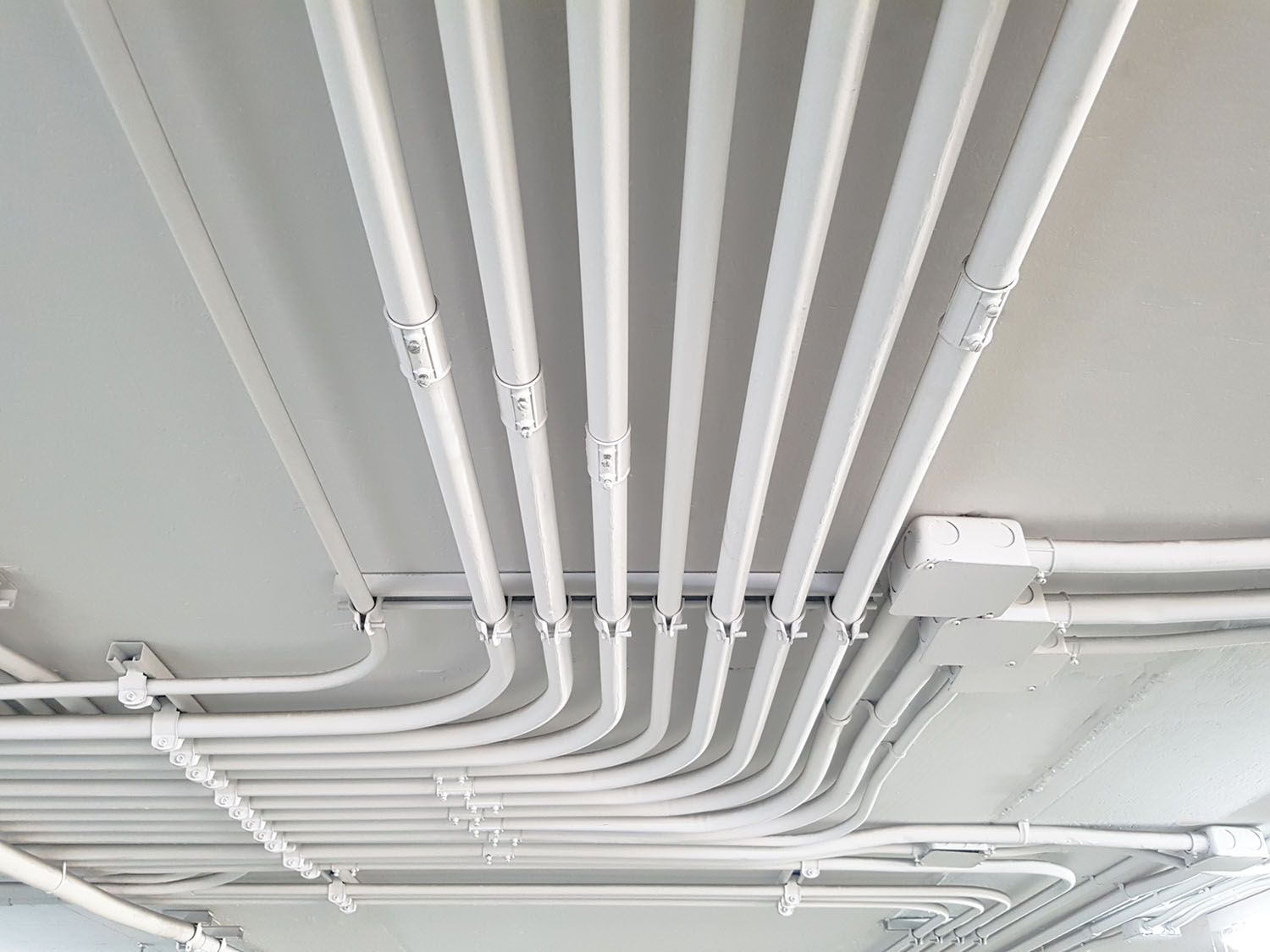Home>Home Maintenance>How Much Does It Cost To Install Central Air Conditioning
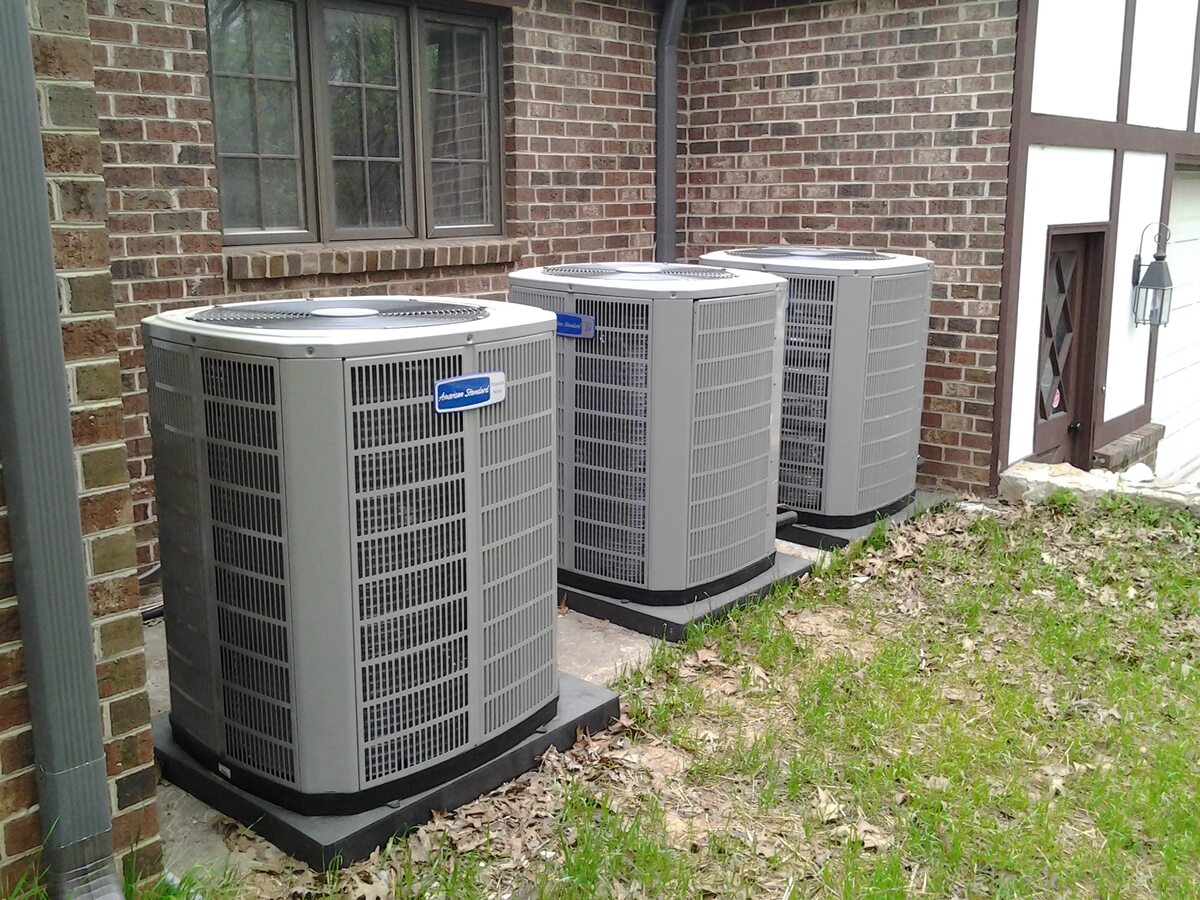

Home Maintenance
How Much Does It Cost To Install Central Air Conditioning
Modified: March 6, 2024
Looking to install central air conditioning in your home? Find out the cost of this essential home maintenance project and make your home comfortable all year round.
(Many of the links in this article redirect to a specific reviewed product. Your purchase of these products through affiliate links helps to generate commission for Storables.com, at no extra cost. Learn more)
Introduction
Welcome to the world of central air conditioning! If you’re tired of relying on inefficient window units or noisy portable air conditioners, it might be time to invest in central air conditioning for your home. Not only does central air conditioning offer superior cooling performance, but it also provides better air circulation, improved indoor air quality, and increased energy efficiency.
However, before you dive into the world of central air conditioning, it’s essential to understand the factors that can affect the cost of installation. By familiarizing yourself with these factors, you can make an informed decision and budget accordingly. In this article, we will explore the key factors that influence the cost of installing central air conditioning and provide a breakdown of the associated costs.
Factors Affecting the Cost of Installing Central Air Conditioning
The cost of installing central air conditioning can vary significantly based on several factors. These factors include:
- Size of the House: The size of your home plays a crucial role in determining the cost of installation. Larger homes require more extensive ductwork and a larger capacity air conditioning unit, which can increase the overall cost.
- Quality and Efficiency of the System: The quality and efficiency of the central air conditioning system you choose will impact the installation cost. High-quality, energy-efficient systems tend to be more expensive but offer long-term savings on energy bills.
- Ductwork Condition: If your home already has existing ductwork in good condition, the installation process will be relatively straightforward and cost-effective. However, if ductwork needs repair or modification, additional expenses may be incurred.
- Complexity of the Installation Process: The complexity of the installation process can affect the overall cost. Factors such as the accessibility of the installation area, installation location, and any unique challenges can impact the labor and materials required.
- Labor Costs: Labor costs for central air conditioning installation vary based on geographic location, contractor rates, and the duration of the installation process.
Now that we have an understanding of the factors influencing the cost, let’s dive into each component’s cost breakdown.
Key Takeaways:
- Installing central air conditioning involves various costs, influenced by factors like house size, system quality, ductwork condition, and labor. Understanding these factors helps in budgeting for a successful installation.
- Consider advanced features, maintenance costs, and energy efficiency when budgeting for central air conditioning. Whether hiring a professional or DIY, it’s crucial to weigh the pros and cons for a successful installation.
Factors Affecting the Cost of Installing Central Air Conditioning
When it comes to installing central air conditioning in your home, several factors can influence the overall cost. Let’s take a closer look at each of these factors:
- Size of the House: The size of your house plays a significant role in determining the cost of installing central air conditioning. Larger homes typically require more powerful and larger capacity units to effectively cool the space. The size of the house also impacts the length and complexity of the ductwork needed for proper air distribution throughout the home. As a result, the installation cost tends to be higher for larger homes compared to smaller ones.
- Quality and Efficiency of the System: The quality and efficiency of the central air conditioning system you choose can impact the installation cost. Higher quality and more energy-efficient units tend to have a higher upfront cost but offer long-term benefits such as reduced energy consumption and lower utility bills. Investing in a system with a higher Seasonal Energy Efficiency Ratio (SEER) rating can contribute to savings in the long run.
- Ductwork Condition: The condition of your existing ductwork, if you have any, can impact the cost of installation. If the ductwork is in good condition, it may only require cleaning and minor modifications. However, if the ductwork is old, damaged, or poorly designed, it may need to be replaced or redesigned to ensure optimal airflow and cooling efficiency. Ductwork repairs or modifications can add to the overall installation cost.
- Complexity of the Installation Process: The complexity of the installation process can also affect the cost. Factors such as the accessibility of the installation area, the location of the system, and any structural or electrical modifications required can increase the installation expenses. For example, if the system needs to be installed in a hard-to-reach area or if additional wiring is necessary, it may require more labor and materials, resulting in a higher installation cost.
- Labor Costs: Labor costs can vary based on geographic location, contractor rates, and the duration of the installation process. Highly skilled and experienced HVAC technicians may charge higher rates for their services, but they can ensure a professional and efficient installation. Additionally, complex installations or installations requiring a larger team can increase labor costs.
It’s important to consider these factors when planning for the installation of central air conditioning in your home. By understanding how these factors can impact the cost, you can make an informed decision and budget accordingly.
Cost Breakdown of Central Air Conditioning Installation
Installing central air conditioning involves several components, each with its associated costs. Let’s explore the breakdown of these costs:
- Cost of the Central Air Conditioning Unit: The central air conditioning unit itself is a significant cost component. The price of the unit depends on factors such as the brand, size, capacity, and efficiency rating. Higher-quality, energy-efficient units typically come with a higher price tag but can provide long-term savings on energy bills.
- Cost of Additional Accessories and Features: Depending on your needs and preferences, you may choose to include additional accessories and features, such as programmable thermostats, air purifiers, or zoning systems. These extras can enhance comfort and efficiency but come with an additional cost. It’s important to budget for these accessories if you decide to incorporate them into your central air conditioning system.
- Cost of Ductwork Installation or Modification: If your home already has existing ductwork in good condition, the cost for ductwork may be minimal. However, if the ductwork requires modifications or if your home doesn’t have ductwork at all, the cost of installing new ducts can significantly contribute to the overall installation cost. Factors such as the complexity of the ductwork layout and the size of the space to be cooled will influence the cost.
- Cost of Electrical and Wiring Work: Installing central air conditioning requires connecting the unit to the electrical system in your home. This includes running electrical wiring, installing circuit breakers, and ensuring that the electrical infrastructure can support the additional load. The cost of electrical work can vary based on the complexity of the installation and the need for any upgrades to the electrical system.
- Cost of Permits and Inspections: Depending on your location, obtaining permits and scheduling inspections may be necessary for central air conditioning installation. Permit fees and inspection costs vary, but they are essential for ensuring that the installation meets local building codes and safety regulations. Be sure to include these expenses in your budget.
- Cost of Labor: Hiring professional HVAC technicians for central air conditioning installation incurs labor costs. Labor costs can vary depending on factors such as the complexity of the installation, the number of technicians required, and local labor rates. It’s important to get quotes from reputable contractors to estimate the labor costs accurately.
When budgeting for central air conditioning installation, it’s crucial to consider the costs associated with each component. This will help ensure that you have a comprehensive understanding of the overall expenses and can make an informed decision about the system that best fits your needs and budget.
Average Cost Ranges for Central Air Conditioning Installation
The cost of installing central air conditioning can vary depending on the size of your house. To give you an idea of the average cost ranges, let’s break it down by the size of the house:
- Small House (1,000 to 1,500 square feet): For a small house, the average cost of central air conditioning installation can range from $2,500 to $5,000. This cost includes the central air conditioning unit, necessary accessories and features, ductwork installation or modification, electrical work, permits and inspections, and labor expenses. Keep in mind that these are average estimates, and the actual cost may vary based on specific factors unique to your home.
- Medium House (1,500 to 2,500 square feet): The average cost of installing central air conditioning in a medium-sized house falls between $5,000 and $7,500. This cost includes all the components mentioned above and may incur slightly higher expenses due to the larger size of the house and potentially more complex installation requirements.
- Large House (2,500 to 4,000 square feet): Installing central air conditioning in a large house can range from $7,500 to $15,000 or more. The larger square footage requires a more powerful and higher capacity system, which comes with a higher cost. Additionally, the cost of ductwork, electrical work, permits, and labor expenses may increase due to the complexity and size of the house.
These cost ranges are general estimates to give you a rough idea of what to expect. It’s worth noting that prices can vary based on factors such as the region you live in, the specific features and accessories you choose, the efficiency rating of the system, and any additional customization options. It’s always advisable to obtain multiple quotes from reputable HVAC contractors to get a more accurate cost estimate for your specific requirements.
Now that we have a better understanding of the cost ranges associated with different house sizes, let’s explore a few additional factors to consider when budgeting for central air conditioning installation.
Get multiple quotes from different HVAC contractors to compare costs for installing central air conditioning. Consider the size of your home, the efficiency of the unit, and any additional features you may want.
Additional Factors to Consider when Budgeting for Central Air Conditioning Installation
When budgeting for central air conditioning installation, it’s essential to consider additional factors that can impact the overall cost and long-term expenses. Let’s explore some of these factors:
- Advanced Features and Technology: Advanced features such as programmable thermostats, smart controls, and zone systems offer enhanced convenience, energy savings, and customization options. However, these features come at an additional cost. Consider your specific needs and budget when deciding whether to include advanced features in your central air conditioning system.
- Maintenance and Repair Costs: Like any mechanical system, central air conditioning requires regular maintenance and occasional repairs. Budget for regular maintenance tasks such as filter replacements, coil cleanings, and system tune-ups. Additionally, unforeseen repairs may arise over time, so it’s important to set aside funds for potential repair costs.
- Energy Efficiency and Operating Costs: Energy efficiency is an important consideration. While more energy-efficient units tend to have a higher upfront cost, they can provide long-term savings on your energy bills. Look for systems with a high Seasonal Energy Efficiency Ratio (SEER) rating to maximize energy efficiency and minimize operating costs over time.
- Warranty and Extended Service Plans: Central air conditioning systems typically come with manufacturer warranties that provide coverage for a specific period. Consider the warranty length and what is included in the warranty when comparing different systems. Additionally, some contractors may offer extended service plans for an additional cost, which can provide additional peace of mind.
By considering these additional factors, you can make a more accurate budget for central air conditioning installation. It’s important to weigh the benefits and costs of various features and technologies, as well as factor in ongoing expenses such as maintenance and repairs, energy efficiency, and warranty coverage.
Whether you decide to invest in advanced features or prioritize energy efficiency, it’s crucial to choose a reliable and experienced HVAC contractor. A professional contractor can help you navigate these factors and provide expert guidance to ensure that your central air conditioning installation meets your needs and budget.
Now that we have covered the additional factors to consider, let’s explore the pros and cons of hiring a professional installer versus opting for a DIY installation.
Hiring a Professional Installer vs. DIY Installation
When it comes to central air conditioning installation, you have the option to hire a professional HVAC installer or take on a do-it-yourself (DIY) approach. Let’s explore the pros and cons of each:
- Pros of Hiring a Professional Installer:
- Experience and Expertise: HVAC professionals have the necessary knowledge and expertise to handle complex installations. They are familiar with local building codes and safety regulations, ensuring a compliant and safe installation.
- Efficiency and Time Savings: Professional installers have the tools, equipment, and experience to complete the installation efficiently and in a timely manner. They can minimize downtime and disruption to your home.
- Warranty Coverage: Reputable installers often provide warranty coverage for their workmanship, giving you peace of mind knowing that any potential issues will be addressed promptly and professionally.
- Permits and Inspections: Professional installers can take care of obtaining the necessary permits and scheduling inspections, ensuring that the installation meets all local requirements.
- Cons of Hiring a Professional Installer:
- Higher Cost: Hiring a professional installer comes with a higher upfront cost compared to a DIY installation. However, the expertise and assurance of a professional may be worth the investment.
- Limited Control: When hiring a professional, you have less control over the specific details of the installation process. You’ll need to trust the installer’s expertise and rely on their recommendations.
- Pros of DIY Installation:
- Cost Savings: DIY installation can save you money on labor costs. You have the opportunity to shop around for equipment and materials at competitive prices.
- Control and Flexibility: With a DIY installation, you have complete control over the process and can customize it to your preferences. You can work at your own pace and make adjustments as needed.
- Cons of DIY Installation:
- Lack of Expertise: DIY installation requires knowledge of HVAC systems and electrical work. If you lack experience in these areas, you may face difficulties or safety risks during the installation process.
- Time and Effort: DIY installation can be time-consuming and physically demanding. You’ll need to invest considerable effort in research, planning, and execution, which can be challenging if you have limited experience in HVAC installations.
- Potential Errors and Safety Risks: Inadequate installation can lead to inefficient cooling, higher energy consumption, and even safety hazards. Without professional guidance, it’s easier to make mistakes that could impact the performance and longevity of your central air conditioning system.
Ultimately, the decision to hire a professional installer or pursue a DIY installation depends on your skill level, confidence, and budget. It’s crucial to carefully evaluate your abilities and the complexity of the installation before making a decision. If in doubt, consulting with a professional can provide valuable insights and help you make an informed choice.
Now that we have examined the pros and cons of hiring a professional installer versus a DIY installation, let’s summarize the key points we’ve covered so far.
Conclusion
Installing central air conditioning in your home can provide a significant improvement in comfort, air quality, and energy efficiency. However, it’s important to consider various factors when budgeting for the installation process. By understanding these factors and their associated costs, you can make informed decisions and ensure a successful installation.
We explored the factors that can affect the cost of installing central air conditioning, including the size of your house, the quality and efficiency of the system, the condition of the ductwork, the complexity of the installation process, and the labor costs involved. By taking these factors into account, you can better estimate the overall expenses.
Additionally, we discussed the cost breakdown of central air conditioning installation, including the central air conditioning unit, additional accessories and features, ductwork installation or modification, electrical and wiring work, permits and inspections, and labor costs. Understanding the breakdown of these costs can help you develop a comprehensive budget.
We also considered the average cost ranges for central air conditioning installation based on the size of the house, ranging from small houses (1,000 to 1,500 square feet) to medium houses (1,500 to 2,500 square feet) and large houses (2,500 to 4,000 square feet). These ranges provide a general idea of what to expect based on the size of your home.
Moreover, we explored additional factors to consider when budgeting for central air conditioning installation, including advanced features and technology, maintenance and repair costs, energy efficiency and operating costs, and warranty and extended service plans. These factors help you plan for long-term expenses and make informed decisions about the features and options you want to include.
Lastly, we discussed the pros and cons of hiring a professional installer versus a DIY installation. While hiring a professional ensures expertise, efficiency, and peace of mind, a DIY installation can offer cost savings and more control over the process. It’s essential to weigh these considerations based on your skills, resources, and comfort level when making a decision.
In conclusion, central air conditioning installation involves several factors and costs to consider. By taking these into account, you can develop a comprehensive budget, choose the right equipment and features, and ensure a successful and efficient installation process. Whether you decide to hire a professional or take the DIY route, investing in central air conditioning can greatly enhance your home’s comfort and enjoyment for years to come.
Frequently Asked Questions about How Much Does It Cost To Install Central Air Conditioning
Was this page helpful?
At Storables.com, we guarantee accurate and reliable information. Our content, validated by Expert Board Contributors, is crafted following stringent Editorial Policies. We're committed to providing you with well-researched, expert-backed insights for all your informational needs.
